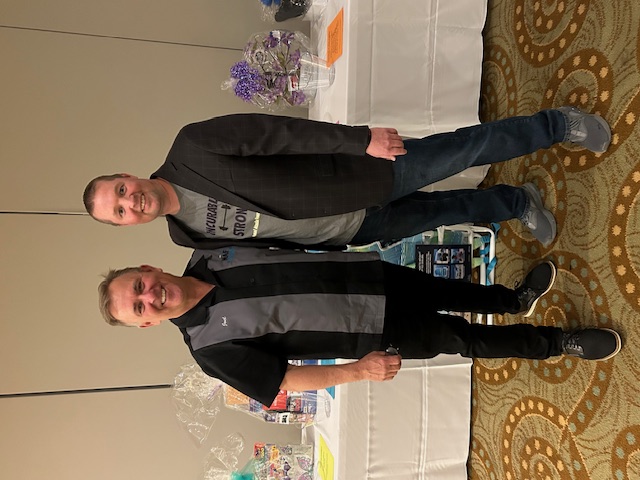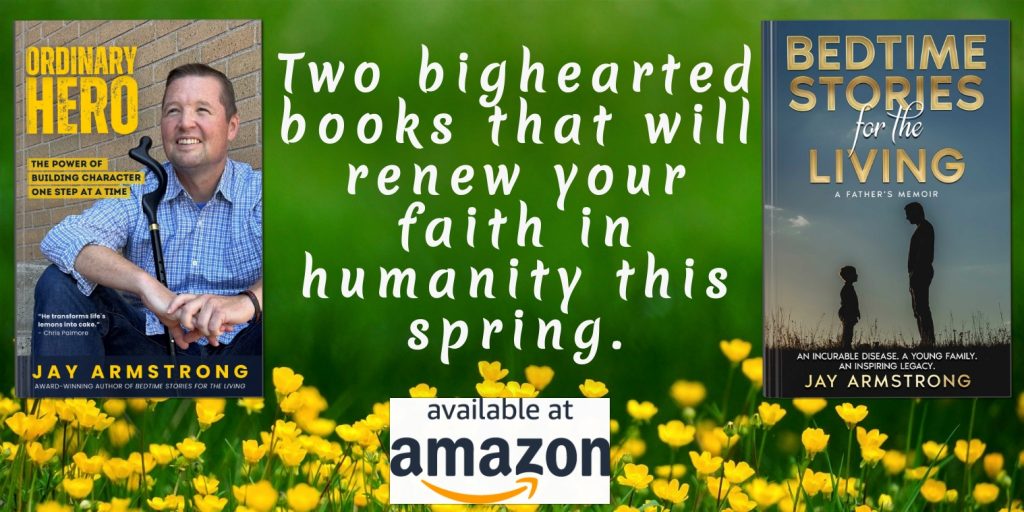The Power of Dropping Hopecrumbs Everyday
The French philosopher and writer Albert Camus, who witnessed the German brutal occupation of France during World War II called it, “desperate heroism.” He believed that when there was not “one must invent hope.”
Viktor Frankel, the Austrian psychiatrist who survived three years in Auschwitz and Dachau concentration camps during World War II, wrote in his harrowing memoir Man’s Search for Meaning, that keeping hope “during long stretches of hopelessness” gave him the courage to stay alive.
Some 80 years later, tucked in the great American suburbs of Philadelphia I’m wobbling on a stage in a hotel ballroom talking about hope. I imagine if Camus and Frankel were sitting together at a round, Best Western table that they would be trading whispers about how this kid, in a fine cut blazer, has a lot to learn about hope.
They wouldn’t be wrong. I spent the last 10 years since my brain diagnosis not being a “desperate hero,” not doing my best to keep hope “during long stretches of hopelessness.”
Even though we may live in manicured lawns of suburbia, we actually live in the wild hills of fear. We are afraid of failing, of rejection, of ridicule. We’re afraid of taking actions that would push us, test us. This is fertile earth for anxiety and worry and regret.
However, if we choose to live in a place of hope, we are willing to face negative outcomes because we know our hopeful choice will ultimately improve our life.
Our hopeful choices do not need to be big, planned experiences. I have found hope gains strength and momentum by doing small, achievable acts. I call these acts “hopecrumbs.” These hopecrumbs nourish us, guide us when we’re lost and starving for hope.
So I ask—what is one small act that you can do right now that would make you more hopeful?
Take a walk, write a letter, sit outside for 20 minutes, do a set of pushups, call a friend.
In my 10 year journey with an incurable disease, I have learned small acts create big hope. And big hope makes us more resilient which allows us to tolerate big despair.
Though I’m not hosting charity events everyday, I do something–no matter how small– everyday that makes me hopeful. I believe hope is only created by action. Idle hope– just wishing things will improve– is the birth of bitterness. And especially when you’re diagnosed with a disease, you’re either creating hope or despair. Hopelessness, I’ve come to realize, is humanity’s biggest disability.


A friend asked how I felt now the charity event was over.
I thought, then said something like, “I’m relieved. And happy that everyone had fun and we reached our financial fundraising goal but because of that event–I’m also more hopeful today than I was yesterday.”
Be well,
Jay

Donation Link: https://fundraise.givesmart.com/vf/comedypa
~~
One Line, One Love Episode 18: Writer’s Toolbox– Cliche’ Reimagined
Is your writing too reliant on cliches? In this episode, Gail and Jay have a lively conversation about how to reinvent cliches. They also talk about how the writer’s job is not to “reinvent the wheel” but to describe the wheel in fresh and imaginary ways. If you’re an everyday writer struggling to write about ordinary experiences in new and exciting ways this episode is a must listen.

OLOL is a unique listening and reading experience that will inspire everyday writers, who dream of writing, to pick up their pens and write one line at a time.
This podblog format (a hybrid of a podcast and blog) is for everyday writers who–like me–often need a creative boost, a scrap of encouragement, and practical advice to unleash the writer within. Each episode consists of five wide-ranging, writer-focused questions and a weekly writing prompt.
Please check it out! And please share with any writer friends or anyone in your life who has ever considered picking up the pen.
~~

Purchase Link
~~
Warm greetings to everyone who found me on the University of Pennsylvania’s Ataxia Clinic’s website! Thanks for stopping by. I have ataxia and though I’m not a doctor, I hope my words comfort, encourage, empower, and serve as good company on your journey.

~~
Jay Armstrong is a speaker and an award-winning author. Despite being diagnosed with a rare neurological disease, that impairs his movement, balance, eyesight, and speech–Jay presses on. The leader of the Philadelphia Ataxia Support Group, he hopes to help you find joy, peace, and meaning in life.





